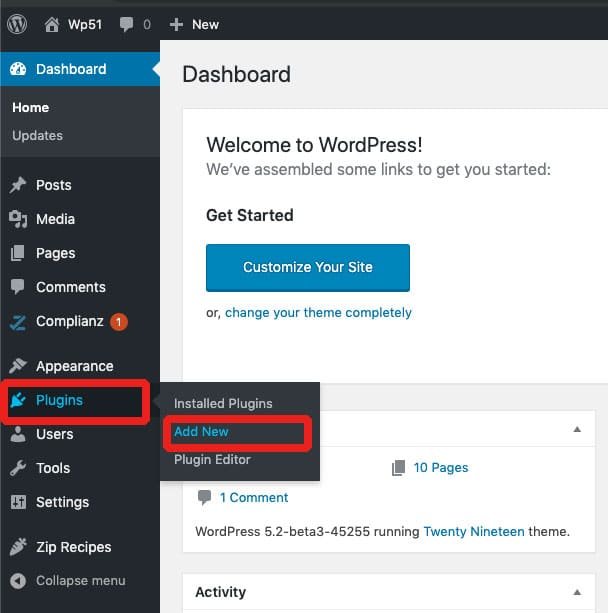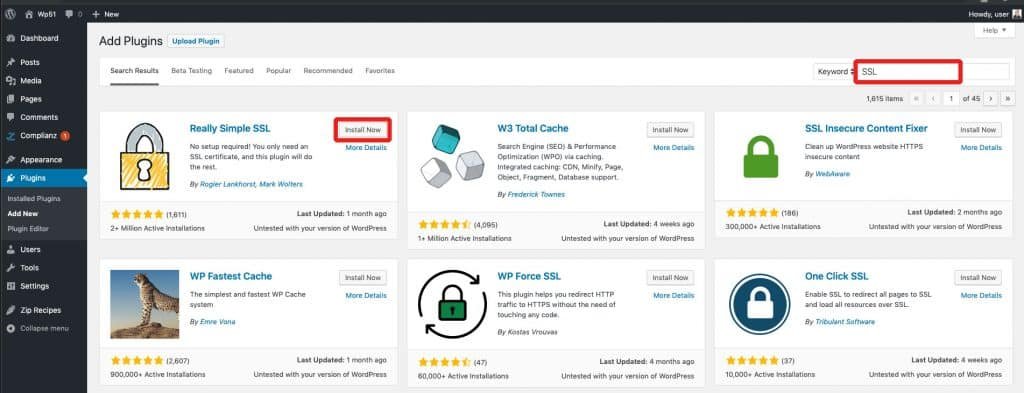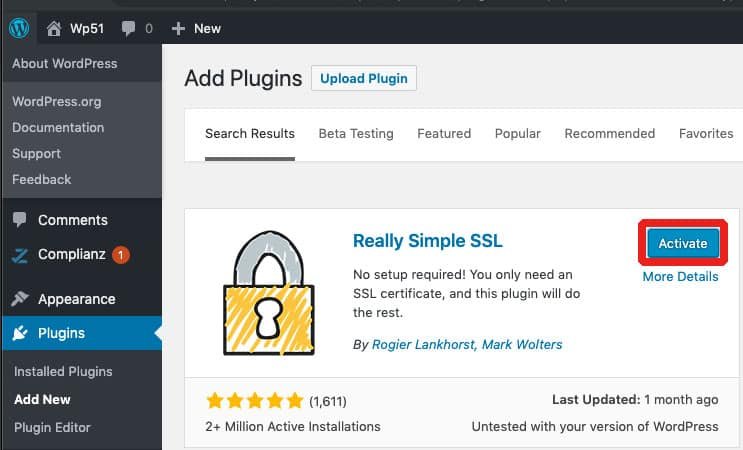SSL certificates significantly impact SEO by enhancing website security, increasing user trust, and improving search engine rankings. Google considers HTTPS (the secure version of HTTP enabled by SSL) as a ranking factor. Websites that prioritize SSL and provide a secure browsing experience gain an advantage in both SEO and user experience. Using HTTPS enables contemporary web capabilities, avoids keyword sniffing, and is in line with Google’s recommendations. So, if you’re running a blog, make sure to implement SSL certificates for better visibility and trust.”
Remember that SSL certificates establish trust, protect sensitive information, and contribute to a positive user experience.
Table Of Content
What are some common SSL certificate types?
Small businesses, blogs, and personal websites can all benefit from DV certificates.
- Extended Validation (EV) certificates help provide the highest standards of validation, requiring an extensive degree of verification of the organization, including its legal existence and physical location. An EV certificate shows the organization name in the address bar, promoting more trust in it by the user.
- Organization Validation (OV) certificates authentically validate the organizational name and prove that they are the owners of the respective domains. They show the company name in the certificate details. Although less extensive than EVs, they offer a well-balanced compromise between security and trust.
- Domain Validation (DV) certificates are one of the most common and easiest to obtain. They verify the ownership of the domain but do not validate organization details. This kind of certificate generally works for small businesses, blogs, and personal websites.
Recall that all certificate types have identical encryption levels; the only things that differ are the procedures needed for vetting and verification in order to obtain them.

How do I choose the right SSL certificate for my blog?
Choosing the right SSL certificate for your blog depends on a few factors:
- Website Type:
- If you have a small blog, a domain-validated (DV) certificate may suffice. DV certificates are cost-effective and provide basic authentication.
- For an e-commerce store, consider an Organization Validated (OV) or Extended Validation (EV) certificate for higher identity assurance.
- If you have a small blog, a domain-validated (DV) certificate may suffice. DV certificates are cost-effective and provide basic authentication.
- Number of Domains:
- If you need to secure multiple domains, consider a Unified Communications (UC) multi-domain/SAN certificate. It covers additional domains and subdomains.
- If you need to secure multiple domains, consider a Unified Communications (UC) multi-domain/SAN certificate. It covers additional domains and subdomains.
- Budget:
- DV certificates are the most affordable, while EV certificates require a higher investment.
Remember, your choice impacts security and user trust.

Which SSL is best for SEO?
When it comes to SEO, Google prioritizes websites with HTTPS encryption. The type of SSL certificate matters less than having HTTPS enabled. So, any SSL certificate—whether it’s a standard one or an extended validation certificate—will positively impact your site’s SEO. Here are some best practices for implementing HTTPS:
- Obtain a Valid SSL Certificate: Choose a trusted certificate authority and get an SSL certificate. Extended validation certificates provide maximum trust.
- Proper Installation: Install the SSL certificate correctly on your hosting server or CDN service.
- Redirect HTTP to HTTPS. Convert HTTP to HTTPS: To make sure that all traffic is routed to HTTPS, use 308 persistent redirects. This also passes link equity.
- Update Links and References: Update unsecured links and references in your site code and templates to use HTTPS URLs.
Recall that HTTPS improves website security and fosters visitor trust in addition to SEO.

Here are some recommendations for free SSL providers:
When it comes to free SSL certificate providers, here are some reliable options:
- Let Us Encrypt: Free SSL certificates are offered by Let Us Encrypt, a nonprofit certificate authority. Millions of web pages trust it and utilize it extensively.
- Really Simple SSL: This lightweight WordPress plugin simplifies SSL setup. It automatically detects your site’s settings and configures SSL using Let’s Encrypt, if needed.
- ZeroSSL: ZeroSSL offers free SSL certificates for life, making it another great choice.
- SSL For Free: As the name suggests, SSL For Free provides forever-free SSL certificates.
Remember to choose the one that best fits your needs and integrates seamlessly with your hosting provider or website builder!
Of those four, which one is the best SSL certificate provider?
- If you have a WordPress site, Really Simple SSL is excellent due to its simplicity and seamless integration.
- For non-WordPress sites, Let’s Encrypt remains a top choice for its widespread adoption and robust security.
Which one is the best SSL certificate provider in WordPress?
Really Simple SSL is the best lightweight and user-friendly security plugin for WordPress. It simplifies the process of setting up SSL (Secure Sockets Layer) on your WordPress website. Here’s why it’s a great choice:
- Easy to Implement: Once activated, Really Simple SSL will check the settings of your site and automatically create an SSL certificate with Let’s Encrypt only if necessary. This means you could switch from HTTP to HTTPS with just a few clicks.
- Vulnerability Scanning: The plugin scans for possible vulnerabilities on your site and helps keep it secure. It ensures that your SSL performance remains optimized.
- WordPress Hardening: Really Simple SSL fortifies your website by addressing weaknesses specific to WordPress. It works in the background to enhance security.
- Security Headers: You can configure advanced security headers designed for WordPress, further improving your website’s safety.
- Premium Support: If you need assistance, Really Simple SSL offers premium support with a responsive team ready to help within 24 hours.
Is it really simple? SSL certificates are secure.
Yes, it is indeed safe. Really Simple SSL is a lightweight and user-friendly plugin for WordPress. It takes the mystery out of setting up SSL certificates on your site to enhance security without compromising your data. Here’s why:
-
SSL Encryption: A simple SSL certificate (SSL/TLS) encrypts data between a user’s browser and the web server hosting the site in question, making data secure when on the move.
-
Transition to HTTPS is Straightforward: Really Simple SSL smoothly transitions your site to HTTPS and enforces SSL with just one click, configuring your site for HTTPS and ensuring a smoother transition.
-
Hardening WordPress: Other functionalities provided by the plugin assure WordPress hardening, preventing code execution in the uploads folder, deactivating XML-RPC, and others with no performance hindrance on the user front. Too many ducks were killed with one single stone though.
- Vulnerability Detection: Really Simple SSL notifies you when plugins, themes, or WordPress core contain vulnerabilities, allowing you to take appropriate action.
- Pro Version: Upgrading to Really Simple SSL Pro provides advanced features like mixed content scanning, security headers, and vulnerability measures.
In summary, Simple SSL improves security without harming your website or compromising your data.
How to Install the Really Simple SSL WordPress Plugin
Here’s a step-by-step guide on how to install the Really Simple SSL plugin in WordPress:
- Log in to your WordPress dashboard.
- Go to Plugins > Add New.
- In the search bar, type “Really Simple SSL.”
- Next to the Really Simple SSL plugin, select “Install Now.“
- To activate the plugin, click the “Activate” button at the end.
Most websites will work successfully with the plugin’s default settings. If you want to change the plugin settings, go to “Settings->SSL->Settings” and enable the 301. htaccess redirect.
The plugin improves security by automatically forcing HTTPS on your website once it is configured. Before making any changes, do not forget to backup your website!
If you’d like to see images along with these steps,



How do I check if Really Simple SSL is working correctly?
To verify if Really Simple SSL is functioning correctly on your WordPress site, follow these steps:
- Visit Your Site: Type your website’s URL with
https://at the beginning (e.g.,https://yourwebsite.com).
- Check the connection status. Click the “View site information” icon to the left of the address bar. Look for the message “Connection is secure.” If you see this, your SSL configuration is working properly.
Furthermore, you may evaluate your SSL implementation and inspect your server using Simple SSL’s integrated health checker. You can adjust the security of your website with its insights into your server settings, security headers, and SSL usage.
FAQ: Is an SSL certificate good from an SEO perspective?
Yes, having an SSL certificate is beneficial from an SEO (search engine optimization) perspective. Here’s why:
- Ranking Signal by Google: Google analyzes HTTPS as its ranking signal. Websites with HTTPS may get a small boost in ranking, which means HTTPS works in your favor in your SEO efforts.
- Trust and Credibility: Websites secured with HTTPS receive a padlock icon and a “Secure” label in the browser’s address bar. This icon visually assures visitors of the security of their connection to your website. This can lead to a greater degree of trust in your website and lower bounce rate and other user engagement metrics, all of which indirectly lead to improved SEO.
- User Experience: Secure connections give your site users a more safe browsing experience. Google has ranked a site’s user experience as one of the key factors in determining its ranking. Secure connection helps positively with user experience, protecting users from data-stealing or interception alongside the assurance that their interaction with your site is private and secure.
- Referral Data: HTTPS-to-HTTPS referral preserves referral data (the referring page information) in Google Analytics. In contrast, when a non-secure site (HTTP) sends visitors to a secure site (HTTPS), that referral data may be stripped, making it very hard to properly track where traffic is coming from. This integrity of data is critical in understanding the sources of traffic to your website, hence informing your SEO strategy.
- Compliance and Future-Proofing: As far as online security standards are concerned, HTTPS has been getting more and more momentum. Search engines and browsers also now prioritize safe connections. Having a secure sockets layer (SSL) certificate will already provide you with an advantage, for your site meets the most contemporary security and compliance standards and would anyway do so for SEO considerations.
In summary, while an SSL certificate directly impacts SEO rankings in terms of a slight boost and improved user experience metrics, its broader implications for trust, security, and compliance make it an essential component of a modern, SEO-friendly website.
I have written written article related to SSL






